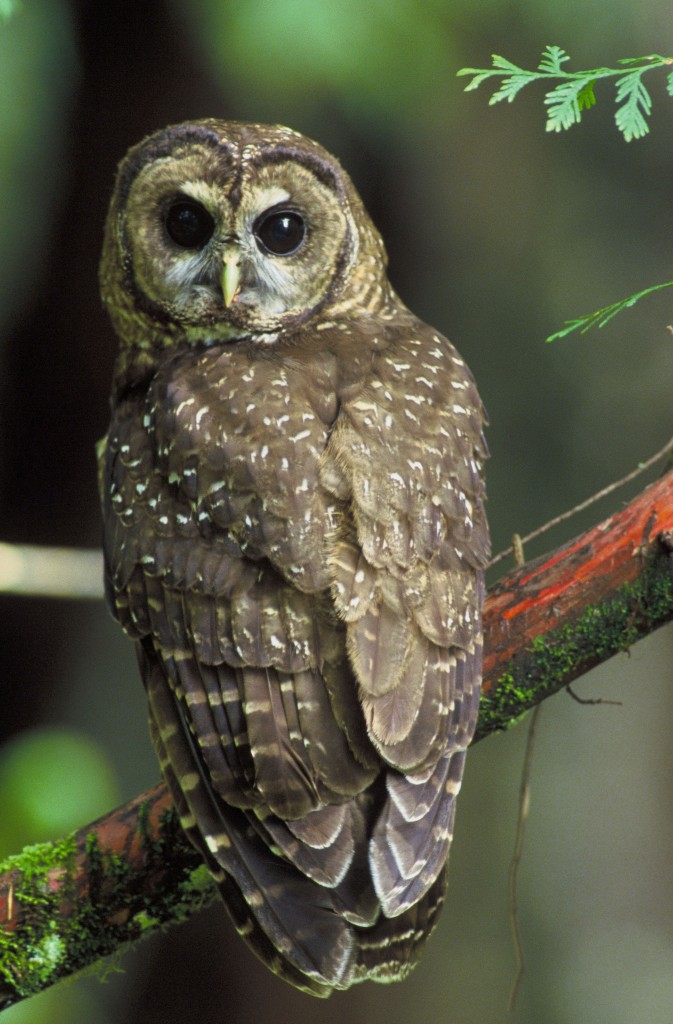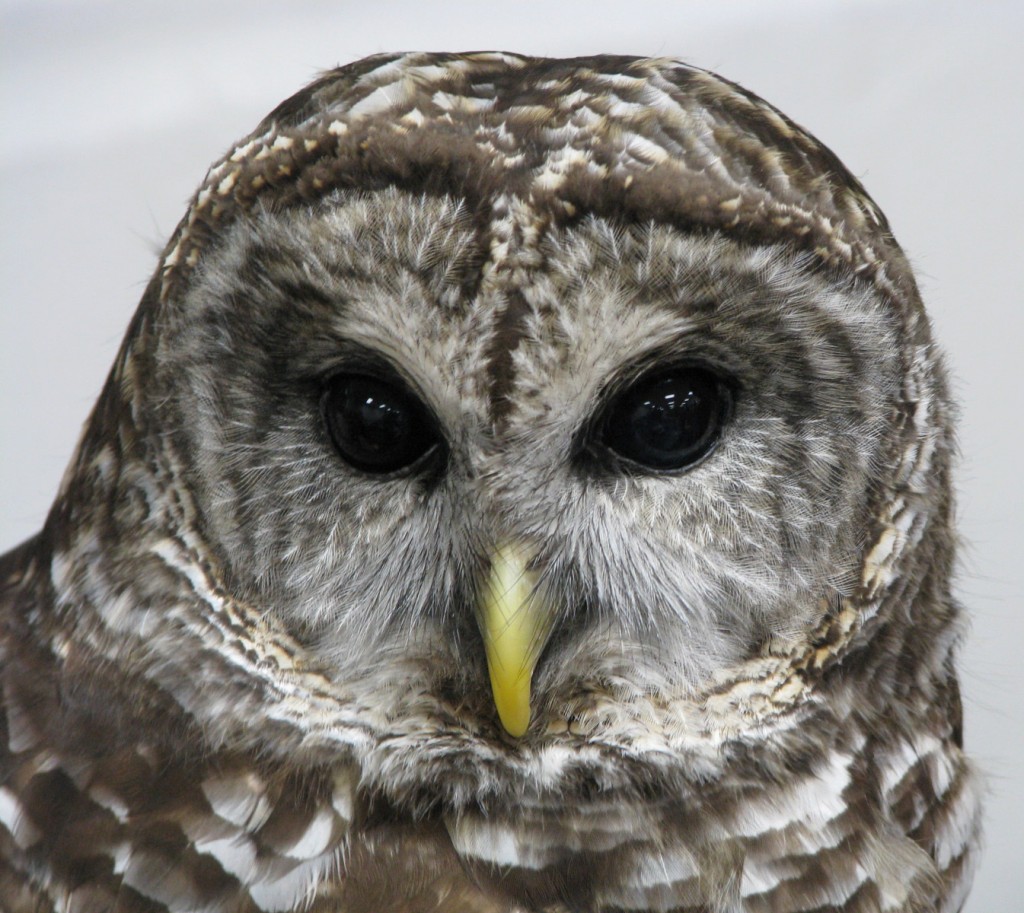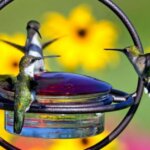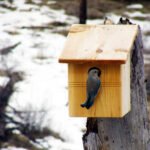
The Northern Spotted Owl, a medium-sized owl with big expressive eyes, is a near-threatened species that’s well-known for causing controversy around the logging industry for contributing to a loss of jobs. Now, in another effort to reverse the decline in spotted owl populations, the government is causing controversy within the conservationism community.
To help save the spotted owl in the Northwest, the Obama administration has announced they’re going ahead with a plan to kill the bigger, more aggressive Barred Owl. Barred Owls overlap much of the same area as Northern Spotted Owls, and they tend to outcompete the smaller spotted owls for food and resources. So, the logic is you have to kill a lot of one bird species to save another species.
This is where the difficult issues arise. Any bird that is declining as rapidly as the Northern Spotted Owl, which is down 40 percent in the last 25 years, deserves a chance to survive. However, there is an ethical dilemma when it’s at the expense of another species.
The government has tried other methods to save the Northern Spotted Owl, including setting aside millions of acres of habitat for the bird, but numbers kept declining. The latest plan would designate even more acres for the bird, while allowing eco-logging to take place to ensure the area is not susceptible to destructive fires.
 Barred Owl
Barred OwlThe most controversial part of the plan, of course, is to remove the Barred Owl.
Lethal and non-lethal ways to remove the Barred Owl would take place, including either outright killing the owls or capturing them to live in captivity. There is currently an experiment taking place in California that’s showing positive results in Northern Spotted Owl populations when the Barred Owl is removed. While this shows some promising signs, it will take the removal of thousands of Barred Owls to see a positive chance on a widespread level.
Here’s an excerpt from an article in OPB News:
Removing barred owls is an experiment worth trying, said Talent resident Dominick DellaSala, a forest ecologist who was a member of the spotted owl recovery team appointed by the USFWS in April 2006.
“The draft plan makes sense from the experimental standpoint — it is appropriate to do whatever we can to prevent the demise of the spotted owl,” said DellaSala, the chief scientist for the Ashland-based Geos Institute.
There is an emerging consensus among scientists that the decline of the northern spotted owl is from both habitat loss and the intrusion of the barred owl, he added.
“This plan is quite similar to what some of us had supported,” he said. “We need to experimentally remove barred owls in conjunction with spotted owl habitat protection. I spent a lot of time arguing that in the recovery team sessions.”
The government has been fighting a losing battle to save the Northern Spotted Owl over the years and many consider the owls to be indicators of the general health of the forest. We’ll have to wait and see to find out whether the plan will stir up backlash or help regrow populations.




11 Comments
More great points Laurence. At the moment, it appears as if guilt is a driving factor for trying to save the Spotted Owl. We made these decisions that negatively impacted a species leading to its decline and will now do nearly anything to rectify that mistake without regards to the possibility of really harming another species.
Also, it seem as though the Spotted Owl has become more of a symbol than a beloved species. I don’t think any administration wants to be the one in charge when the Spotted Owl becomes extinct in the wild because of widespread criticism of a lack of conservation. Right now, nature itself is working against the Spotted Owl and if we change nature in a way that stops it, wouldn’t we be doing the same thing that got us into this unfortunate mess in the first place?
I guess I’m also nervous about this idea of choosing one species over another, in this example saying that the rarity of the Spotted Owl makes its life more valuable than the Barred Owl. I think evaluating in such terms can set a dangerous precedent. What if another species moves in on the Spotted Owl after the Barred Owl? What if the Spotted Owls move into other territory and then require the elimination of native species?
I know lots of these hypotheticals are pretty farfetched, but time and again we come to these compromising decisions…